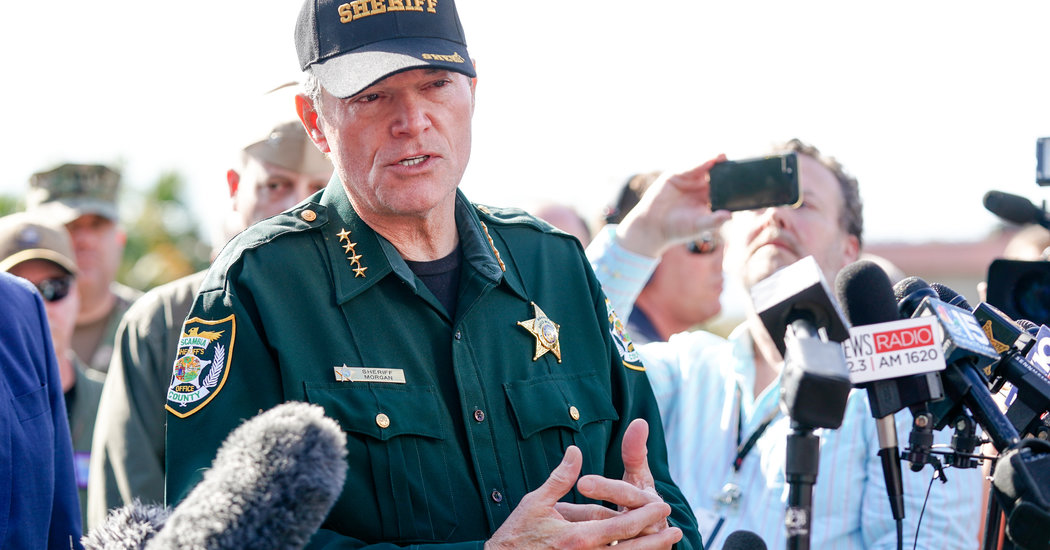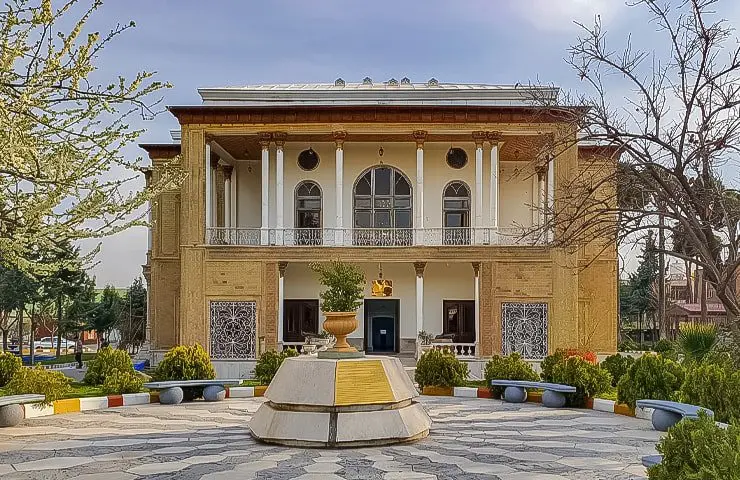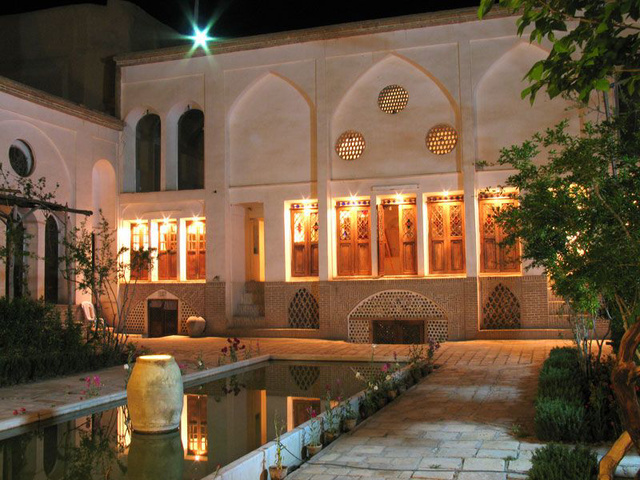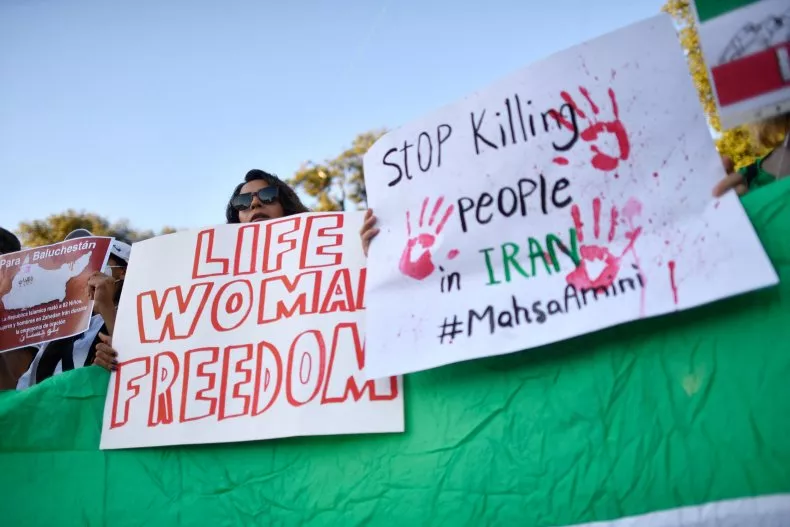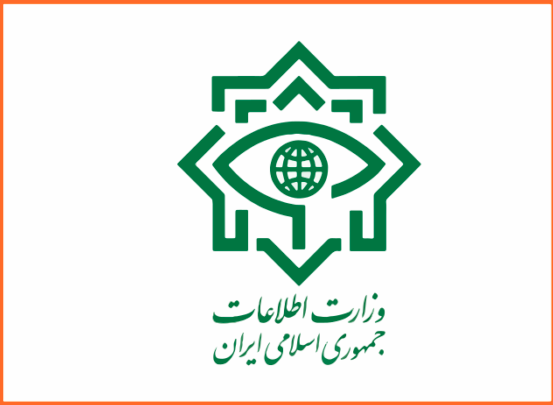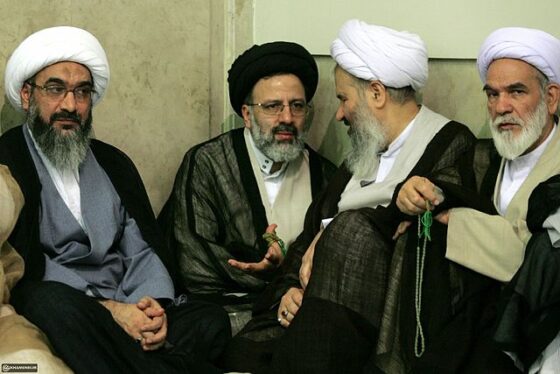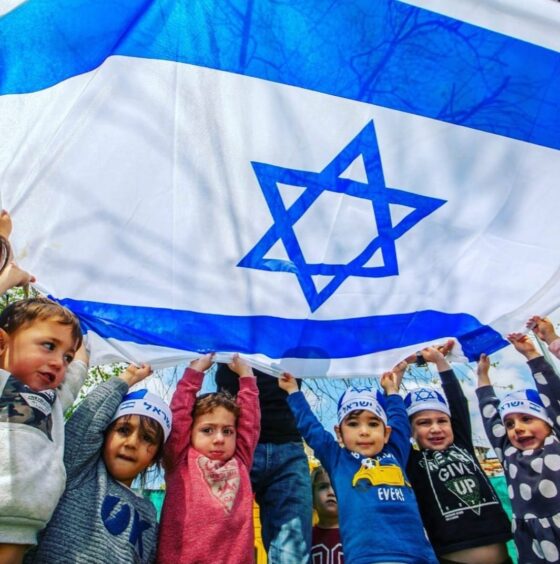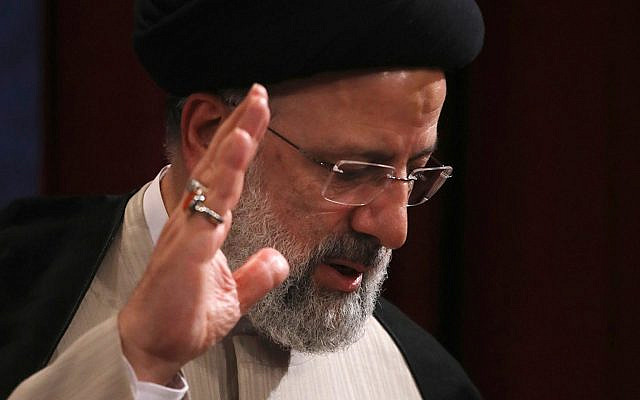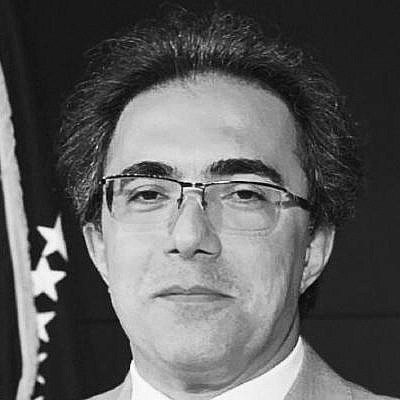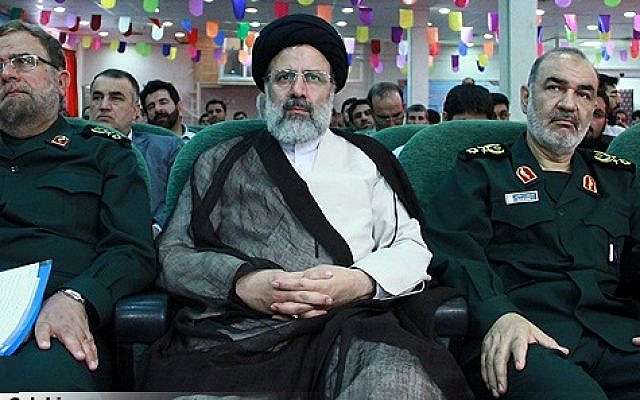Image

Investigators are working on the presumption that the shooting was an act of terrorism.
Rachel Rojas, the special agent in charge of the Federal Bureau of Investigation’s Jacksonville field office, said on Sunday that the presumption of terrorism allows law enforcement agencies to more quickly identify and eliminate any potential threats to the community. None have been identified so far, she said.
“Our main goal right now is to confirm whether he acted alone or was he a part of a larger network,” Ms. Rojas said at a news conference on Sunday. “We currently assess there was one gunman who perpetrated this attack, and no arrests have been made in this case.”
The 21-year-old gunman, Second Lt. Mohammed Saeed Alshamrani of the Royal Saudi Air Force, was fatally shot at the scene on Friday. A number of other Saudi students who were in the same training program are cooperating with the authorities, Ms. Rojas said. All international students in the program have been accounted for, she said, and the Saudi commanding officer has required his students to remain at Naval Air Station Pensacola.
“The Saudi government has pledged to fully cooperate with our investigation,” Ms. Rojas said.
Ms. Rojas declined to confirm many reported details about the gunman and the shooting, including whether a Twitter account that had posted a screed about “evil” America had been verified as his, when he had been radicalized, or when he lawfully purchased the handgun he used.
“The answers we all want may not come quickly,” Ms. Rojas said.
Video images from security cameras and a bystander’s phone are being combed for clues.
A spokeswoman for the F.B.I. office in Jacksonville said investigators were going through “digital evidence,” including video recorded by several cameras on the military base and by a bystander with a cellphone who was outside the building during the attack.
“We have interviewed that person, and are analyzing the videos to determine if any details can further this investigation,” said the spokeswoman, Amanda Warford, the public affairs officer for the Jacksonville office.
She urged anyone else who may have video images or other information relevant to the case to contact the bureau on its toll-free number, 1-800-CALL-FBI.
‘More needs to be done’ to vet foreign military trainees.
Gov. Ron DeSantis of Florida, a former Navy prosecutor, insisted that the federal government must improve its checks on the troops from other nations who come to the United States for training.
“There’s a frustration with this,” Governor DeSantis said at a news conference on Sunday. “I mean, you have foreign military personnel coming to our base. They should not be doing that if they hate our country.”
Defense Secretary Mark T. Esper said on “Fox News Sunday” that the Pentagon would review screening procedures but would maintain the training programs.
“The ability to bring foreign students here to train with us, to understand American culture, is very important to us,” Mr. Esper said. “We have something that our potential adversaries, such as Russia and China, don’t have.”
The review announced by Mr. Esper is a good start, Governor DeSantis said, but “my sense is that more needs to be done.”
The governor also took issue with federal regulations that allow foreign military trainees who hold the type of visa the gunman held to purchase weapons in the United States.
“That’s a federal loophole that he took advantage of,” Mr. DeSantis said.
Officials identified the victims.
Three sailors were killed in the attack on Friday. The authorities identified them late Saturday night as:
-
Ensign Joshua Kaleb Watson, 23, of Coffee, Ala.
-
Airman Mohammed Sameh Haitham, 19, of St. Petersburg, Fla.
-
Airman Apprentice Cameron Scott Walters, 21, of Richmond Hill, Ga.
“The sorrow from the tragic event on N.A.S. Pensacola will have a lasting impact on our installation and community,” said Capt. Timothy F. Kinsella Jr., the commanding officer of the base. “We feel the loss profoundly and grieve with the family and friends of the deceased.”
Captain Kinsella said the sailors who were killed had showed heroism and bravery by running toward the danger to save lives, and had prevented the toll from being far worse.
Eight others were injured in the attack, including two deputies responding to the scene.
‘He was shooting my baby.’
Sheila Watson, Ensign Watson’s mother, said her son’s commanding officer had described to her how the 23-year-old sailor was fatally shot trying to confront the gunman.
Ensign Watson had been on overnight watch duty at the classroom building where the shooting took place, and jumped over a desk or counter when the gunman started shooting, she said.
“He hollered back for people to get out, to run, and he tackled him,” Ms. Watson said, her voice wavering with emotion. “He was fighting with him trying to unarm him, and he was shooting my baby.”
Ensign Watson was shot five times. He managed to crawl out of the classroom building, Ms. Watson said, and gave emergency personnel a description of the gunman and his location, “and then he collapsed.”
The youngest of three brothers, Ensign Watson, who went by Kaleb to his family, had first wanted to be a Marine, like one of his uncles, and later a Navy SEAL, his mother said. He ultimately decided to become a pilot, so he could have a military career and later perhaps a civilian career as well.
He was a skilled marksman, captain of his high school rifle team in Enterprise, Ala., and later at the United States Naval Academy in Annapolis, Md. He moved to Pensacola two weeks ago to begin flight training.
He had purchased a five-bedroom home — along with a leather sectional sofa, a lawn mower and weed trimmer, his mother said — and was looking forward to renting rooms in it to other aviation students and to living only a couple of hours’ drive away from his parents.
The family spent Thanksgiving together, and Ensign Watson and his father, Benjamin Watson, both Auburn fans, watched the Iron Bowl. Then, for the first time in the five years since he left for the Naval Academy, the young man helped cut down a Christmas tree and decorate it.
“He was the one that put the angel on top,” Ms. Watson said. “And it’s still there.”
Clues have emerged about the gunman’s actions before the attack.
Federal law enforcement officials still have not publicly released information about the investigation or the gunman. But some clues have emerged about what the gunman, who had been training on the base, was doing in the days and weeks before the shooting.
The night before the attack, the gunman showed videos of mass shootings at a dinner party, according to a person who had been briefed on the investigation.
Days earlier, the gunman and three other Saudi military trainees were in New York City, visiting several museums and Rockefeller Center. Investigators have not said whether the trip was just a sightseeing tour or whether there were other motives.
Several dozen FB.I. agents and New York Police Department detectives have been working to learn everything they can about the visit to New York City, according to a person with knowledge of the matter.
Investigators believe that the aviation students were in New York for about four days; the agents and detectives have been trying to determine precisely where they went during that time, a process that has involved tracing their movements through credit cards, surveillance video and other means, the person said.
Several other Saudis on the Pensacola base were detained for questioning after the shooting. One of them, who had been at the scene of the shooting with two others, had recorded the chaotic scene in front of the classroom building where the shooting took place.
The attack may strain U.S.-Saudi relations.
After the attack, President Trump tried to tamp down any suggestion that the Saudi government needed to be held to account. Mr. Trump announced on Twitter that he had received a condolence call from King Salman of Saudi Arabia. On Saturday, he told reporters that “they are devastated in Saudi Arabia,” noting that “the king will be involved in taking care of families and loved ones.” Mr. Trump did not use the word “terrorism.”
What was missing was any assurance that the Saudis would aid in the investigation, help identify the suspect’s motives, or answer the many questions about the vetting process for a coveted slot at one of the United States’ premier schools for training allied officers. Or, more broadly, why the United States continues to train members of the Saudi military, which has been accused of repeated human rights abuses in Yemen.
“The attack is a disaster for an already deeply strained relationship,” Bruce Riedel, a scholar at the Brookings Institution and a former C.I.A. officer who has dealt with generations of Saudi leaders, said on Saturday. It “focuses attention on Americans training Saudi Air Force officers who are engaged in numerous bombings of innocents in Yemen, which is the worst humanitarian catastrophe in the world,” Mr. Riedel said, noting that the Trump administration had been fighting efforts in Congress to end American support for that war.
For the White House, the calculus is simple: Saudi Arabia is critical to the world’s oil supplies — though no longer to the United States’ — and it is the only Gulf power willing and able to counter Iran. Former members of the Trump administration say that as a result, the administration has been dismissive of any critiques that could weaken ties between Washington and Riyadh.
At a Sunday church service in Pensacola, Representative Matt Gaetz, a Republican who represents the area in Congress, said he told the Saudi ambassador “in no uncertain terms” that “no interference” from the kingdom would be allowed in the shooting investigation, even as authorities seek to determine whether the attack was the product of any conspiracy or received financing from overseas.
“We will have no stone unturned,” Mr. Gaetz said.
[Read more about the attack’s effect on U.S.-Saudi relations.]
There have been at least seven shootings on military bases this year.
In the wake of two attacks — the shooting in Pensacola on Friday, and another on Wednesday in which a sailor in Hawaii killed two shipyard workers at the Pearl Harbor Naval Shipyard — military officials are again confronting just how vexing and persistent such incidents have become.
The base shootings reflect both the complications of banning private weapons from places where military personnel train to fight the nation’s wars and the difficulties of monitoring a population whose members are often dealing with extraordinary levels of stress.
To ensure that no unauthorized weapon ends up on a base, military installations would need to be outfitted with T.S.A.-style screening — a level of security and added expense that military officials are unlikely to embrace.
[Read more about the attacks on military bases.]Adam Goldman, Chris Cameron and William K. Rashbaum contributed reporting. Susan C. Beachy contributed research.

